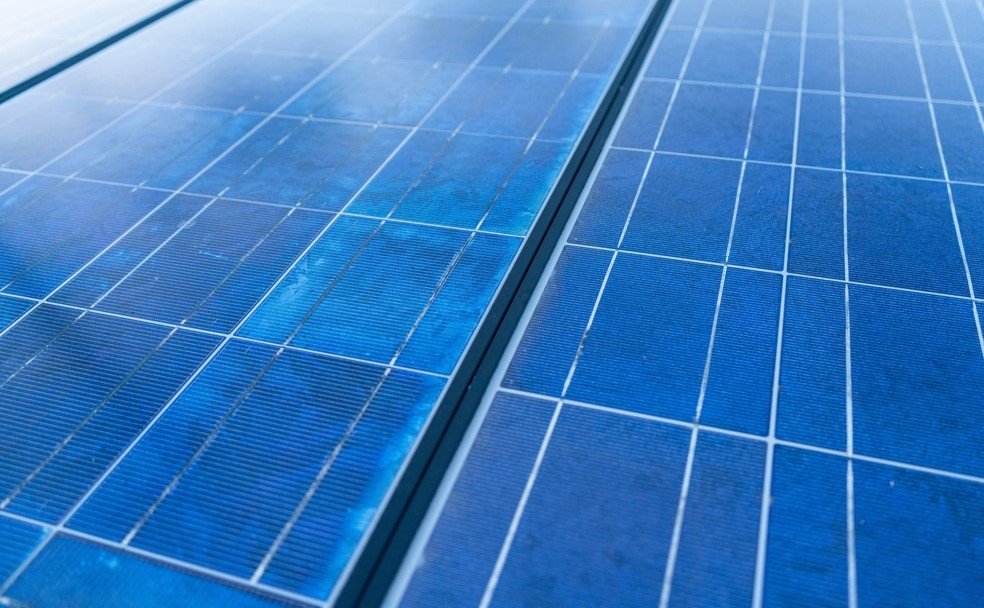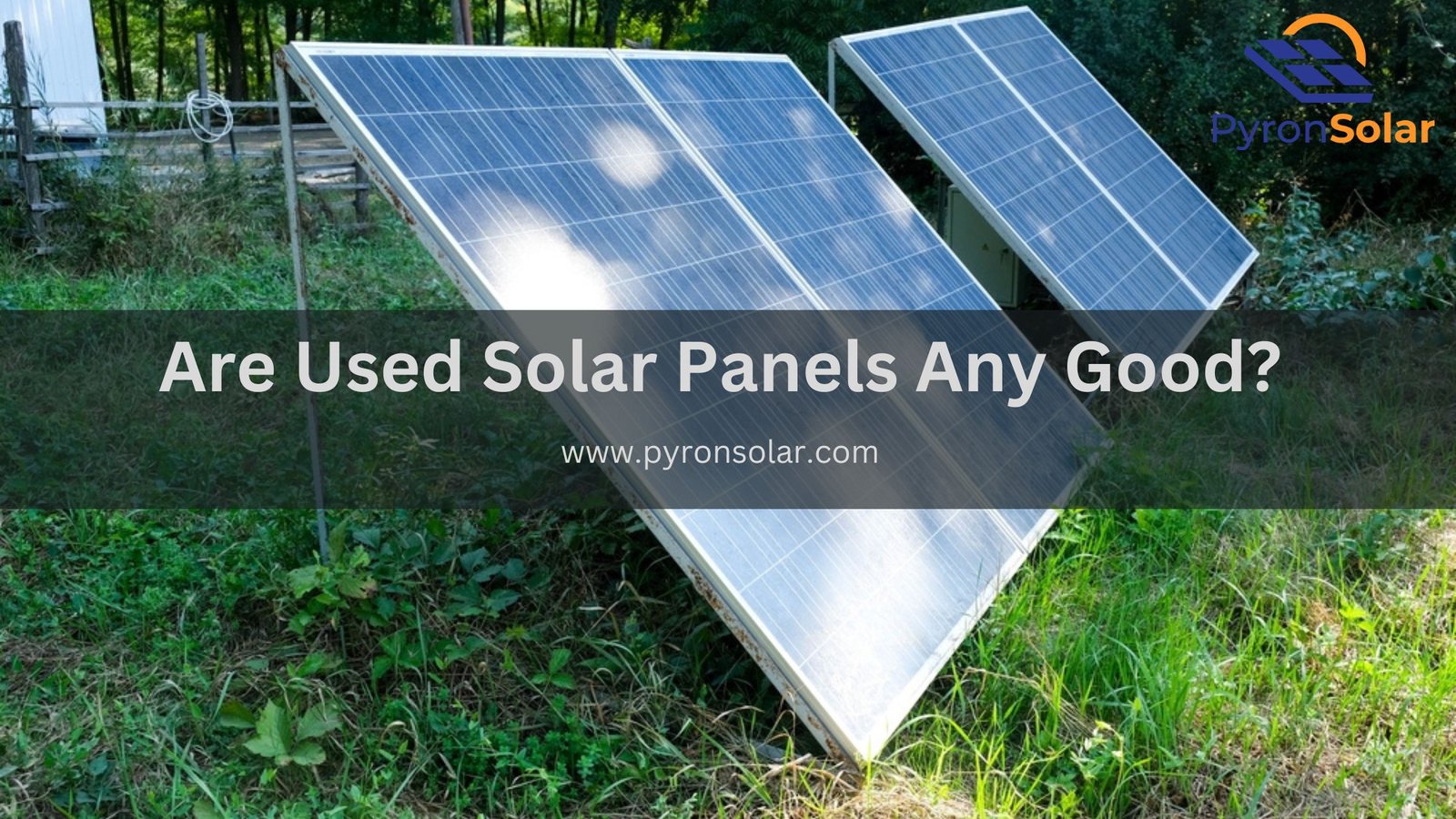Yes, Used solar panels are good to use if you choose to opt money-saving short-term option. However, in recent years, a new trend has emerged in purchasing used solar panels.
Especially, when people cannot invest huge amounts of money on new panels, used solar panels help them utilize green energy at a very low price. Also, few of them upgrade or replace their panels and hence these used panels become a useful source for non-affordable people.
Although solar panels are a core component of renewable energy, the higher upfront costs set a barrier for many individuals. The average cost of an 11-kilowatt (kW) solar panel system is $22,022 in 2024 after applying federal tax credits.
Before knowing where to purchase used solar panels and their equipment, you need to understand if it is worth it or not by considering certain important factors that help you figure out the difference between Refurbished solar modules. Most importantly, you will soon find out the cost, service duration, warranty, eligibility criteria for incentives and installation challenges linked with the used solar panels.
What Are Used Solar Panels?

A used solar panel is a photovoltaic panel that was previously purchased and operated by sources like individuals for residential upgrades, replacements for commercial solar farms or businesses like utility companies. Even though a solar panel is purchased and taken out of the box, but never used still comes under the category of used solar panels.
On the other side, the spectrum of conditions for a solar panel operated for 15+ years, that has broken cells, burned bypass diodes or worn-out frames is still considered a used product.
Understanding this spectrum is important for potential buyers as it helps them evaluate the performance and lifespan of second-hand solar panels, as the output degrades up to 0.5% per year. Also, it enables you to check external damages to prevent reduced performance and fire hazards.
Cost of Used Solar Panels
Typically, a used solar panel costs between $0.10 to $0.60 per watt, which is 50 to 70% of the price of the new modules such as the Monocrystalline ($1 to $1.50 per watt) and Polycrystalline ( $0.90 to $1.50 per watt). You should also know the cost of new solar panels. It will help you to get a better idea of the cost difference between new and used.
Important Factors to Keep in Mind When Buying Used Solar Panels
Several factors like service duration, seller’s reason for selling, warranty, eligibility incentives, technological requirements, cost analysis and installation limitations should be considered while purchasing used solar panels.
Service Duration
The length of the time of used solar panels that impacts their efficiency and lifespan are measured in terms of service duration.
As a potential buyer, you should pose questions such as:
- How long were the panels in use?
- Under what conditions was it operated?
- What is the degradation rate of these panels?
- Are there any additional future expenses?
- Were these panels exposed to harsh weather conditions?
- Have these panels undergone repairs or modifications during their usage?
Seller’s Reason for Sale
The seller’s reason for attempting to sell solar panels might be related to upgrading to more advanced versions or moving to new homes. You
You should ask these questions about the seller’s intention to sale of the used panels such as:
- Why are the panels being sold?
- Are the parts being damaged or worn out?
- Were the panels removed due to system expansion?
- Has the seller purchased too many new panels?
- Are the panels being repaired or modified?
- Are there any issues with the panels?
Warranty
Warranty transfers for used solar panels are crucial to provide financial security, ensure longevity, product coverage (10–12 years) and performance guarantee (80% of original output after 25 years).
As a buyer, you should ask these questions about used solar panels warranty:
- How long is the warranty period?
- What does the warranty cover?
- Does the warranty cover labour and shipping costs?
- What is the process of applying for the warranty?
- Is the warranty transferable or not?
- What are the conditions for a warranty?
- Are these panels professionally inspected?
Eligibility for Incentives
The eligibility for incentives plays a crucial role in lowering the limitations towards the adoption of solar energy, which enhances the incentives and promotes the change towards sustainable and renewable energy sources.
While purchasing solar panels, you should ask these questions related to incentives such as:
- What are the eligibility criteria for the incentive program?
- What is the process to apply for the incentives?
- Are the incentives valid for used solar panels?
- Do I need to submit any documentation or proof of purchase?
- Are there any maintenance or inspection requirements to become eligible for the incentives?
- What happens if I sell my property after installing used solar panels?
Technological Considerations
It is important to consider the technological aspects while investing in solar panels that can impact performance, efficiency, and lifespan based on factors like age, model, condition, efficiency, and manufacturing advancements.
During your purchase, you should ask these questions related to the technological setup of used solar panels such as:
- What is the age of solar panels?
- Can these panels integrate with the latest technological system components?
- Are there any technological limitations for used solar panels?
- What are the government incentives available, and how can they offset the costs?
- Is it possible to upgrade or expand your solar system with these panels in the future?
- What is the model of solar panels and their specifications?
- Are there any manufacturing defects in the solar panels?
- What technology do the solar panels use? Are these panels up-to-date with the latest advancements?
Cost Analysis
Performing the cost analysis for solar panels helps you determine the financial viability and return on investment (ROI).
While estimating the cost, these are the few questions you should ask:
- What was the initial cost of the used solar panels?
- What are the expected operating costs such as maintenance, repairs, etc?
- How much amount can I save on my electricity bills?
- Can the used solar panels increase the value of my property?
- How can the efficiency of used solar panels affect my savings?
Installation Challenges
Finding a highly skilled solar installer for used solar panels is extremely challenging. At times, the quality, and long-term performance of these second-hand solar panels become questionable which can pose a threat to businesses that provide workmanship warranties for solar installation.
Especially, the DIY installation for used solar panels is riskier and requires in-depth technical knowledge to install, troubleshoot, maintain and repair the system on a long-term basis.
These are the questions you should ask while considering the installation challenges:
- What are the installation procedures for used solar panels?
- How to prevent the nesting of birds and other animals under the panels?
- What measures are taken to ensure the proper installation of solar panels?
- What are the potential wiring problems during installation? How can these issues be solved?
Refurbished vs Used Solar Panels
Refurbished solar panels are the modules restored to acceptable working conditions and an independent source that certifies the equipment is in working order, whereas used solar panels are previously installed and operated systems that are still in working condition.
The difference between Refurbished and used solar panels are tabulated below based on these factors:
| S.No | Factors | Refurbished Solar Panels | Used Solar Panels |
| 1. | Performance | Higher | Lower |
| 2. | Cost | $2.86 per watt approximately | $0.10 to $0.60 per watt approximately |
| 3. | Warranty Options | Shorter warranty period ( 3 months to 9 years) | Warranty transfers (check for the number of years remaining) |
Overall, the choice between Refurbished and Used solar panels depends upon personal choices and requirements. If your budget is a primary concern and ready to accept a lower performance, then second-hand panels are the best choice. Contrarily, if you’re seeking a perfect balance between cost and performance, then Refurbished Solar Panels might be the better choice.
Are Used Solar Panels Worth It?
The worth of used solar panels can be analysed by evaluating their pros and cons, scenarios where they offer high value and the long-term drawbacks.
PROS of Used Solar Panels:
- Budget-Friendly: As a buyer, you can save a considerable amount of money as used solar panels are a fraction of the budget of new ones.
- Environmental Impact: Electronic wastes are reduced and the new life to the used solar panels diminishes the environmental impact linked with the disposal and manufacturing of new modules.
- Instant Availability: The used solar panels are immediately available for installation and can be beneficial for projects with tight targets.
CONS of Used Solar Panels:
- Lower Efficiency: Solar Panels’ efficiency declines over a certain time and this degradation requires more panels to achieve the same energy output.
- Shorter Lifespan: The lifespan of the used solar panels will certainly be shorter than the used ones, which could double the long-term costs and reduce the overall value earned from the initial investment.
- Lack of Warranty: The absence of a warranty can add a threat to buyers if the panels fail to perform.
There are certain scenarios, where the used solar panels, offer high-value such as:
- Limited Budget: Used solar panels can be a greater choice for individuals who want to gain benefits of the solar energy within a limited budget.
- Higher sunlight exposure: You can gain huge profits through used solar panels if you’re living in an area with abundant sunlight.
These are potential long-term drawbacks such as:
- Frequent repairs: The savings of used solar panels are ineffective in the long run due to shorter lifespan and regular repairs.
- Higher recycling costs: There is a risk of used solar panels reaching landfills as the replacement rate is faster than the huge costs of the present recycling rates.
{Video Credit: DIY Solar Fun with Ray Loveless}
Where Can You Buy Used Solar Panels?
Here are some popular websites where you can purchase used solar panels listed along with their pros and cons in detail:
1. eBay:
PROS:
- A wide range of used solar panels are available.
- Reasonable Pricing.
CONS:
- Limited warranty.
- Fluctuations in quality and condition of the panels.
2. Alibaba:
PROS:
- Various options for bulk purchases.
- Various designs of used solar panels are available.
CONS:
- Higher Shipping costs.
- A huge challenge for quality assurance.
3. Sunhub:
PROS:
- Best platform to purchase new, used or refurbished solar panels.
- Easy to find different types of solar panels.
CONS:
- Limited Warranty.
- The quality and conditions of the solar panel might vary.
4. Amazon:
PROS:
- Best customer service and reliable shipping.
- Used panels are eligible for Amazon’s return policy.
CONS:
- Limited selection of used solar panel types.
- Higher prices compared to other online platforms.
5. Local Solar Installation Companies:
PROS:
- Easy to inspect panels before purchasing.
- Offers installation services.
CONS:
- Limited Selection.
- Higher prices due to operating costs.
Can We Buy Used Solar Equipment?
Yes, you can buy used solar equipment if you prefer to save money on a short-term basis. However, you need to consider certain important factors to gain several benefits in the long run such as the source and reputation, age of solar panels, compatibility with the latest technology and installation complexity, output performance, and seller’s return policy.
Overall, the second-hand panels underperform when compared to the new modules, and it is recommended to perform independent inspection and performance testing whenever possible.
Ray is an avid reader and writer with over 25 years of experience serving various domestic and multinational private and public energy companies in the USA.

